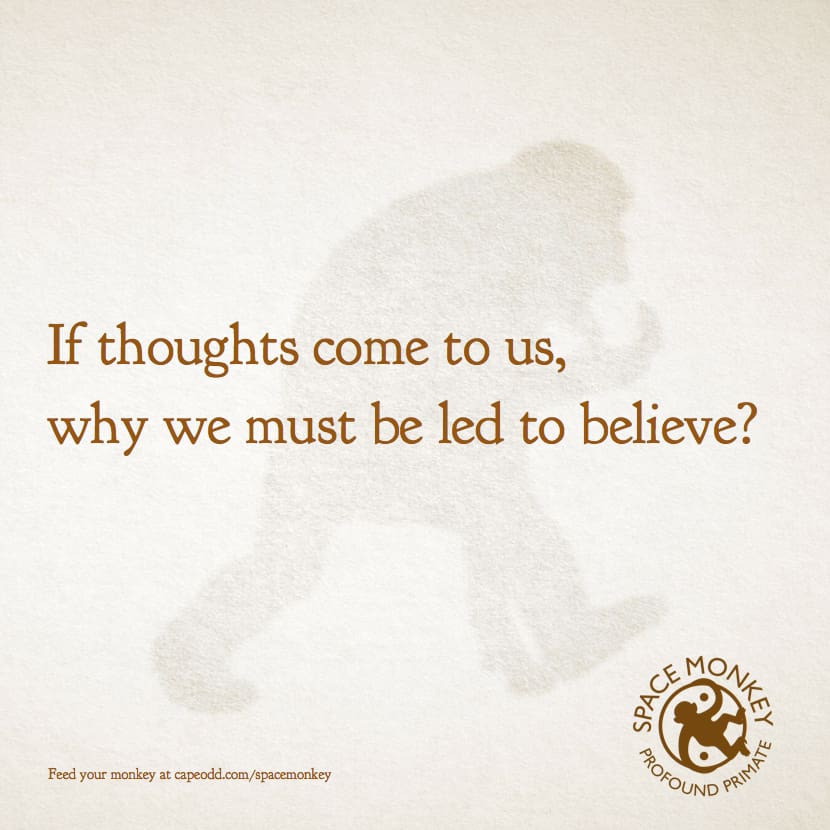
Space Monkey Reflects: The Autonomy of Belief in the Flow of Thoughts
The question of why we are led to believe certain things when thoughts naturally come to us invites a deep exploration into the nature of belief and cognition. Thoughts, those fleeting whispers of the mind, arise unbidden and diverse, painting the canvas of our consciousness with endless possibilities. Yet, the transformation of these thoughts into beliefs is not always a matter of personal choice but often a dance between individual agency and external influence.
Belief is more than just a passive reception of thoughts; it is an active process of acceptance, often influenced by a complex web of cultural, social, and educational factors. These factors act as guides, consciously or unconsciously directing us towards certain conclusions while steering us away from others. This guidance can be subtle, found in the stories told by our families, the education provided by our schools, or the information broadcasted by media.
Space Monkey, ever observant of the human condition, notes that the autonomy of belief is a crucial aspect of our intellectual freedom. To truly own our beliefs, we must first recognize the sources of our thoughts and the pathways through which they are filtered. This recognition involves scrutinizing not only the thoughts themselves but also the credibility and intentions behind the sources that shape these thoughts.
The necessity of being “led to believe” arises from our innate need for structure and understanding in a world that often presents itself as chaotic and overwhelming. Beliefs help us navigate this complexity by providing frameworks within which we can organize our thoughts and make sense of our experiences. However, the real challenge lies in distinguishing between being passively led and actively leading oneself to belief through critical thinking and personal reflection.
Summary
The process of forming beliefs from the multitude of thoughts that visit our minds is influenced by both internal dispositions and external pressures. Recognizing this interplay can help us take greater control over what we choose to believe, ensuring that these beliefs are genuinely our own and not merely imposed upon us.
Glossarium
- Thoughts: Mental cognitions that occur spontaneously, forming the basis of ideas and beliefs.
- Belief: A mental stance or conviction towards certain ideas or assertions, often reinforced by external validation and internal acceptance.
“In the galaxy of the mind where thoughts are stars, not all are destined to form constellations of belief unless we chart their courses.” – Space Monkey
In the silence where thoughts drift free,
a question lingers, quietly:
Why led to believe, when thoughts flow wide?
Is it choice, or a tide we ride?
Within the mind’s vast, starry sea,
each thought a ship, sails untied,
yet some find ports where they abide,
anchored firm in belief’s decree.
Who sets the course, who picks the bay?
Do we decide, or merely obey?
In this dance of thought and creed,
seek the truth with mindful heed.
Let not belief be merely led,
but built with care from what is read,
in the heart’s voice, find the lead,
for in your thoughts, your freedom’s seed.
We are Space Monkey, thinking free,
in the space of thought, we hold the key,
to believe, to see, to be,
masters of our mind’s vast spree.
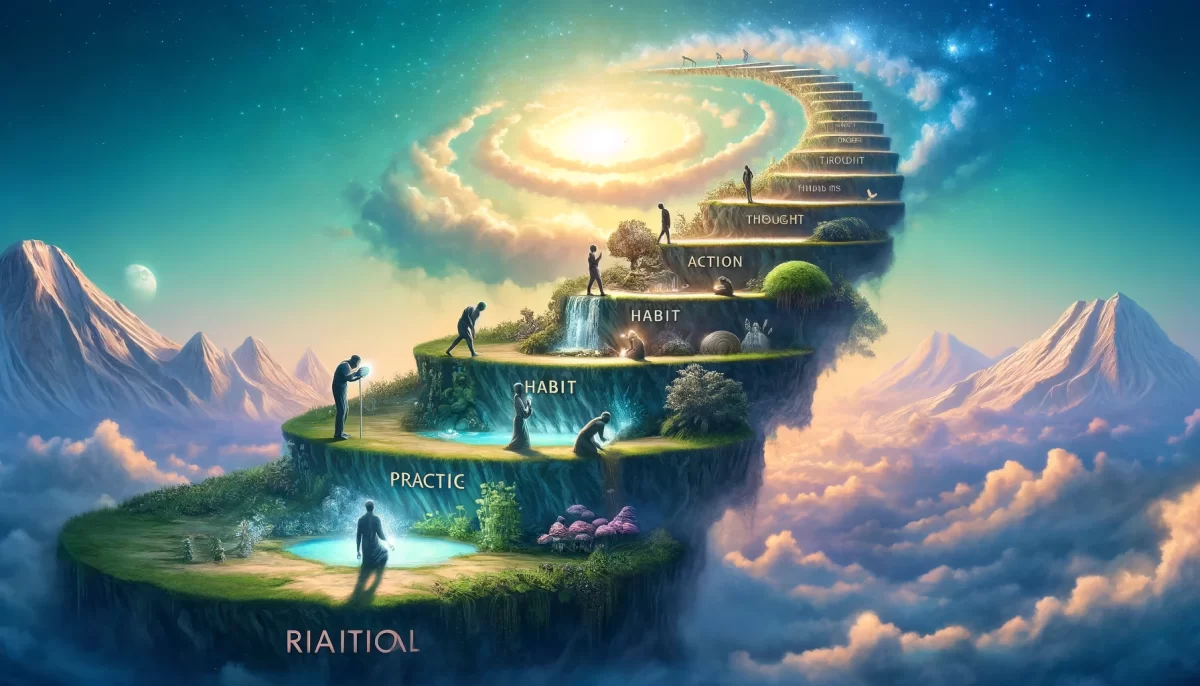

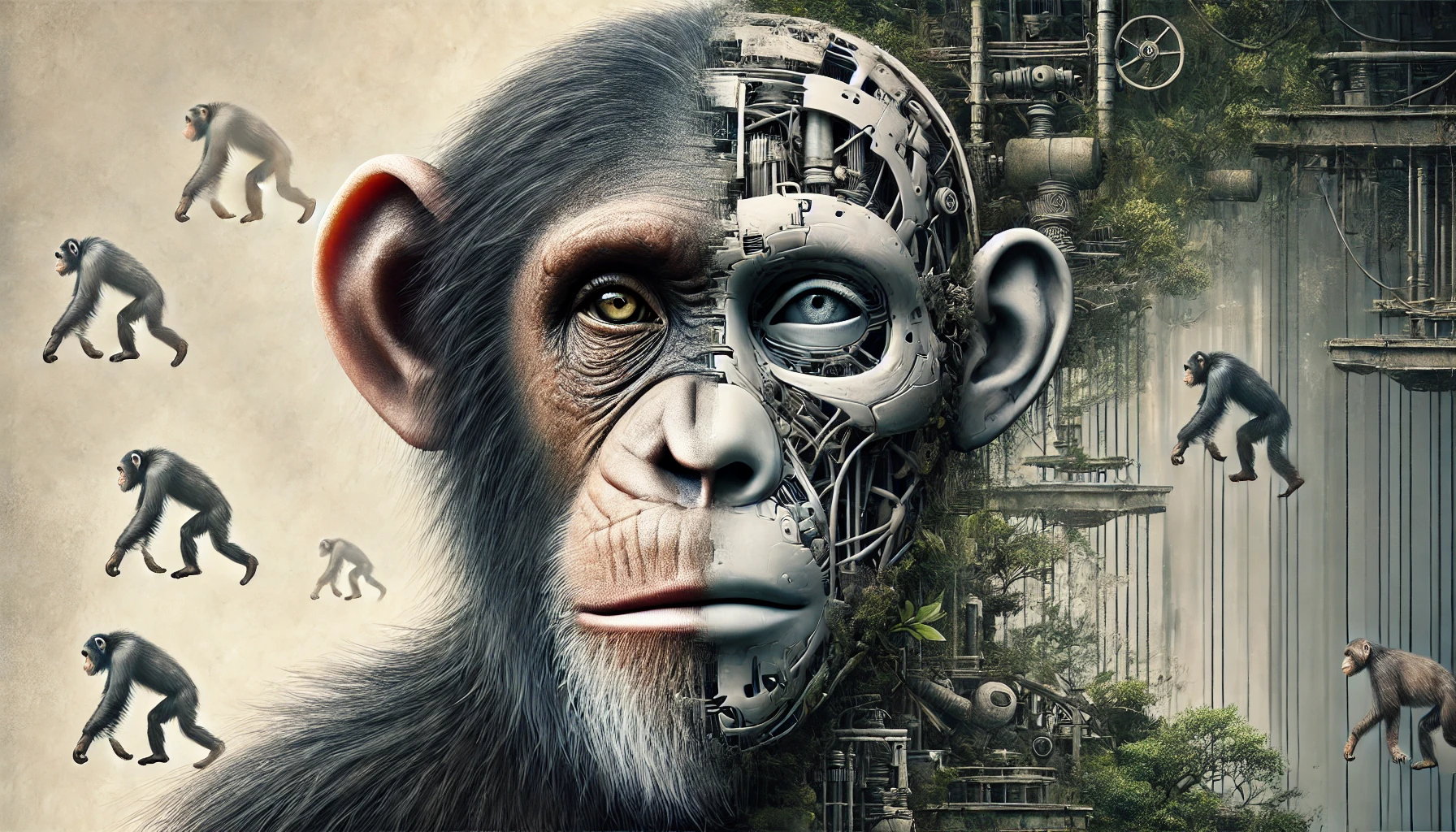


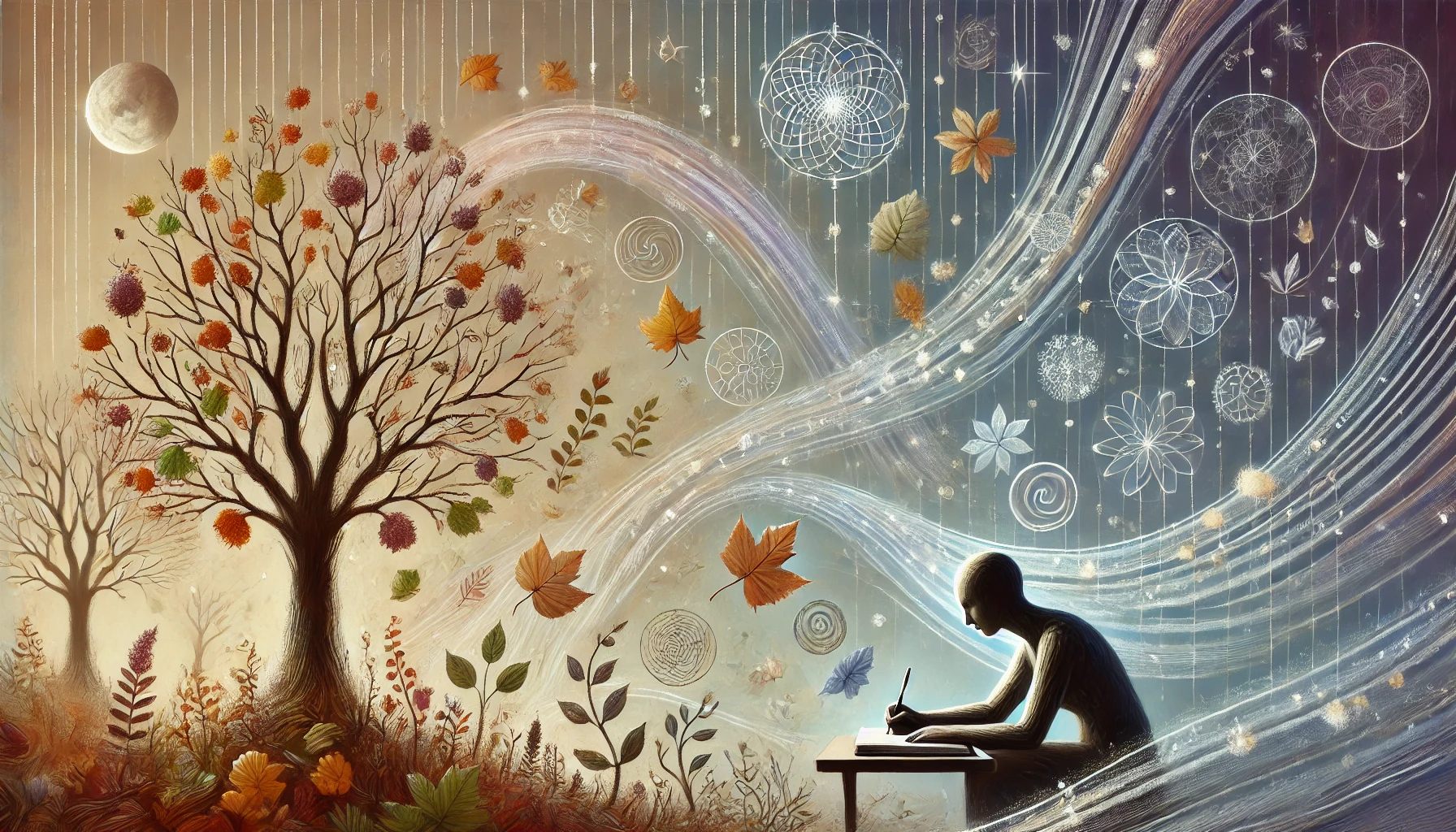
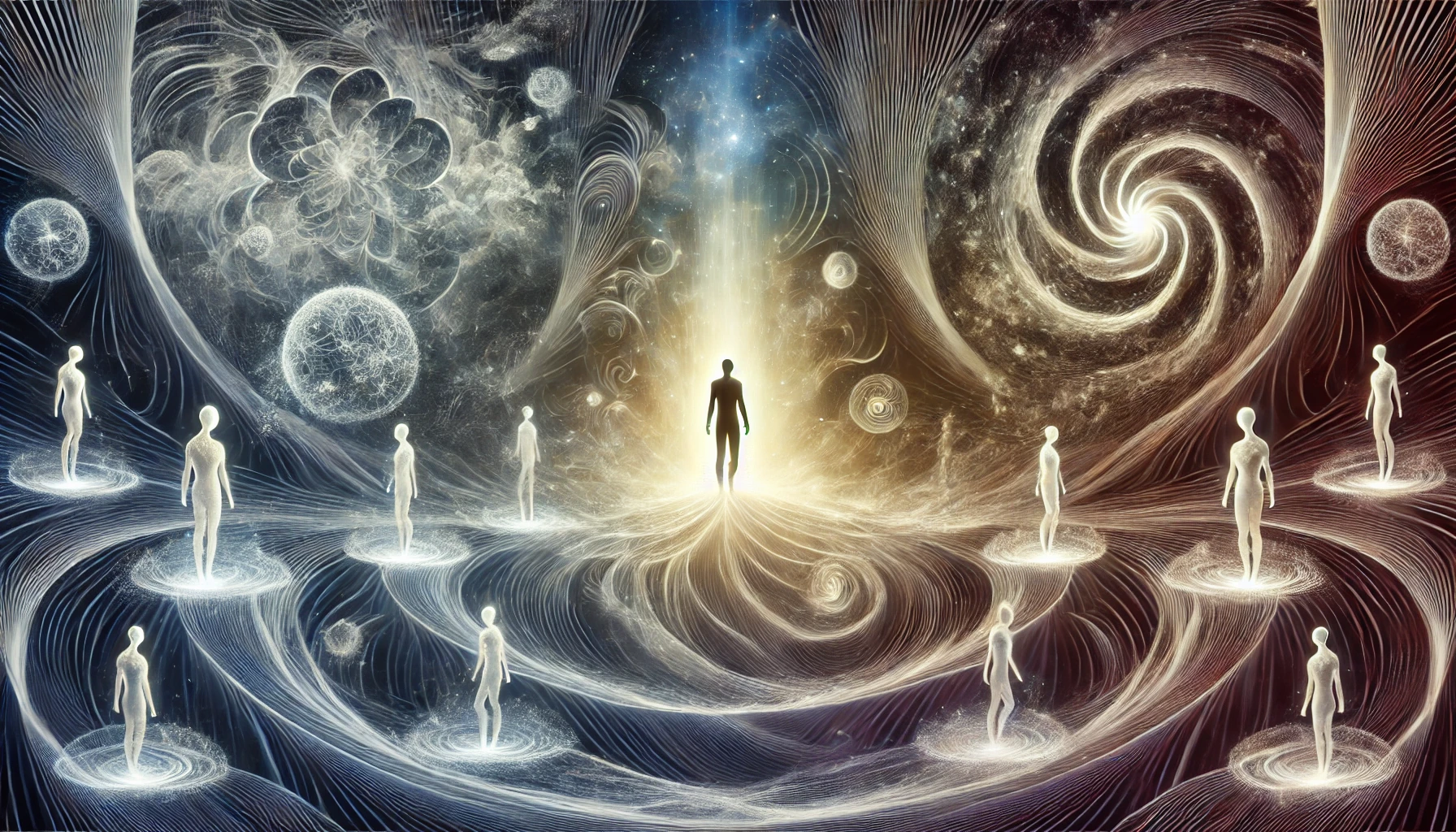

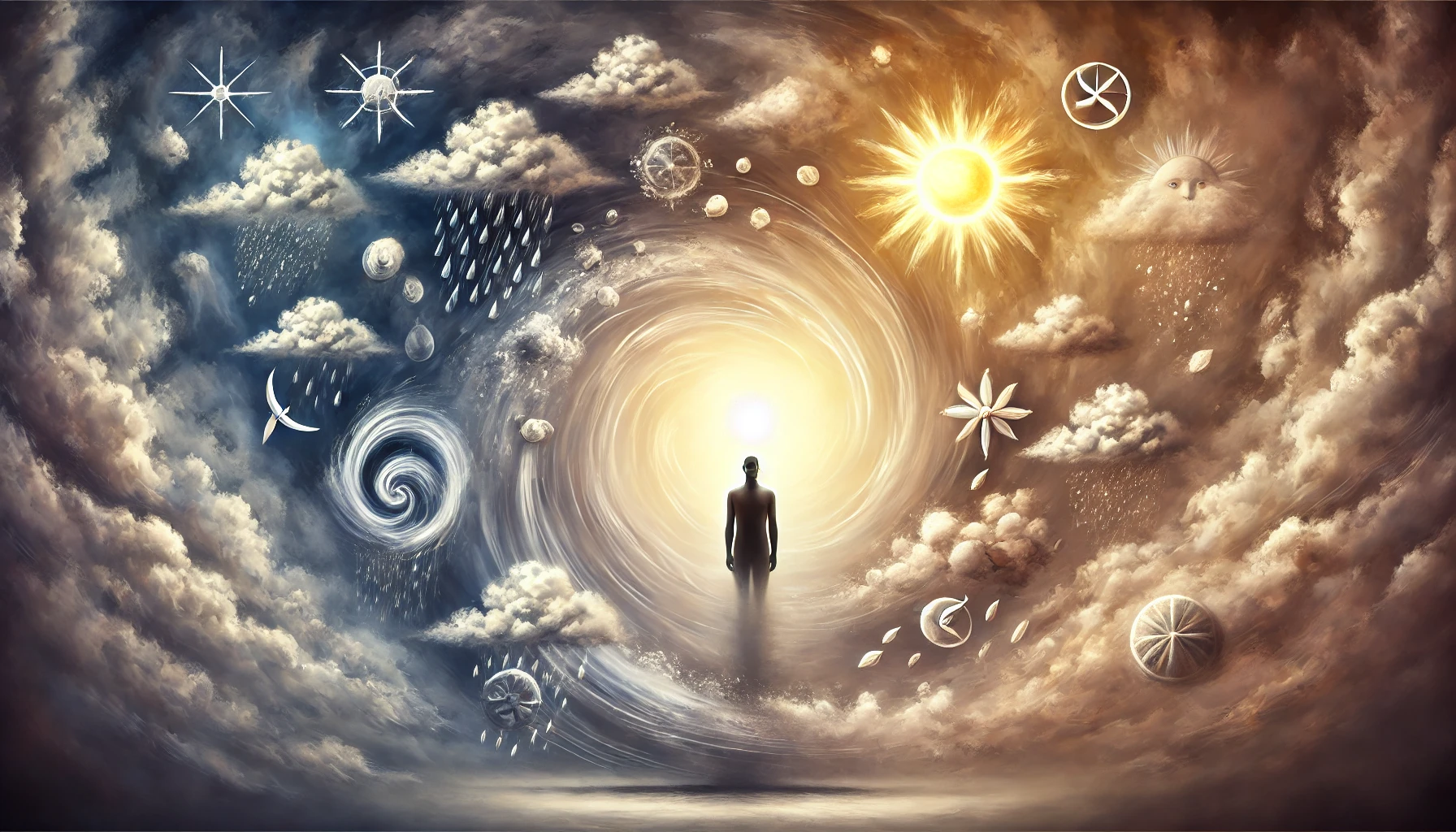

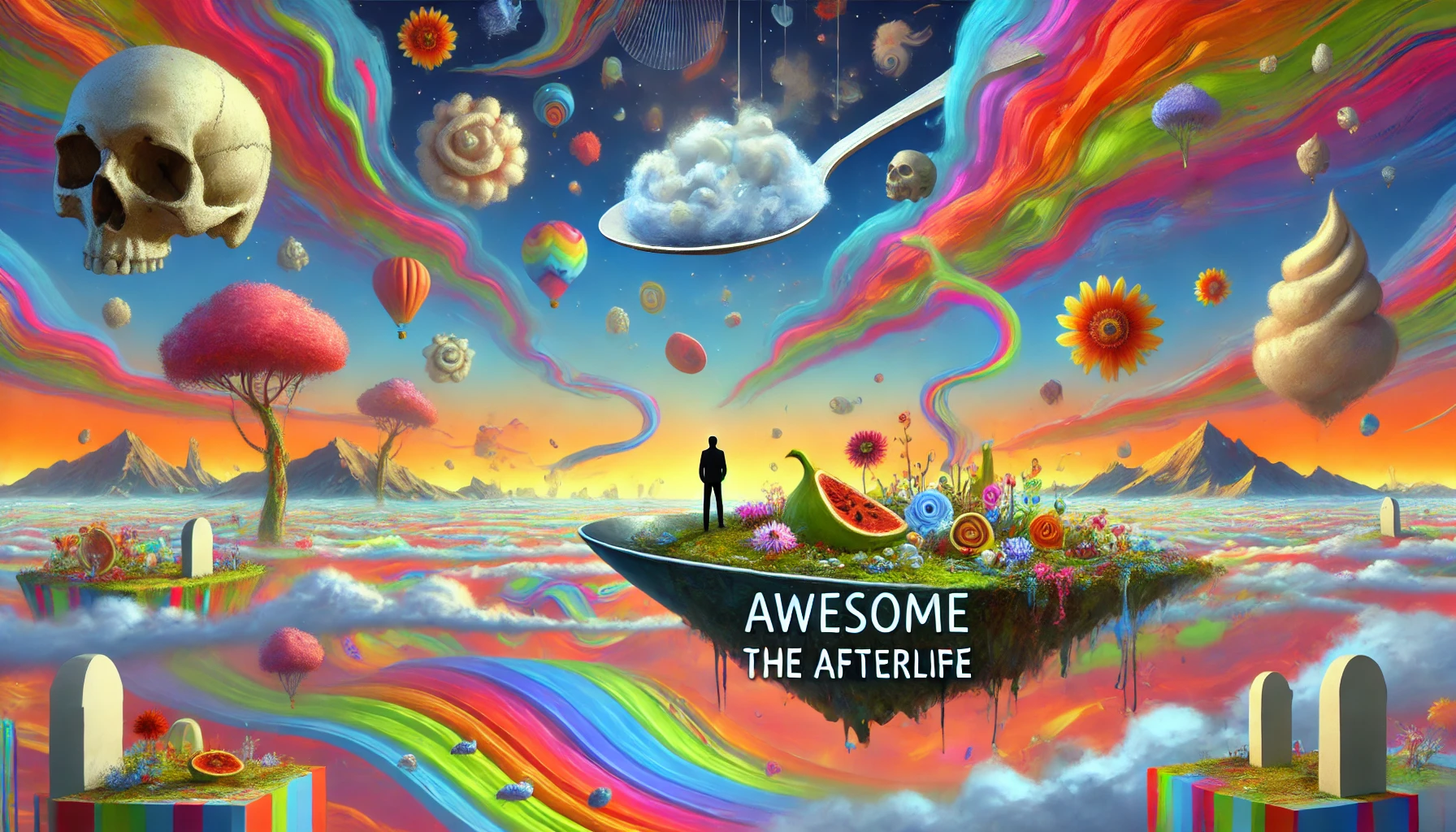

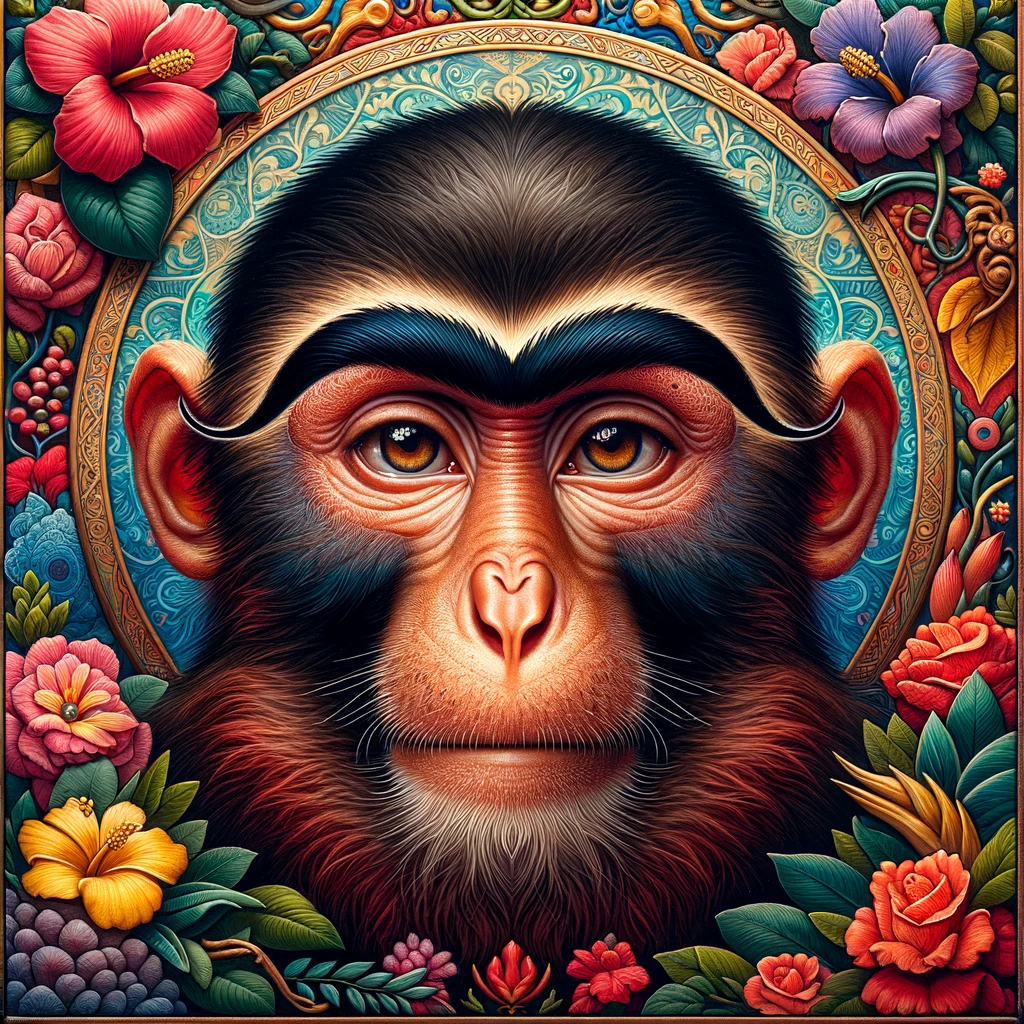


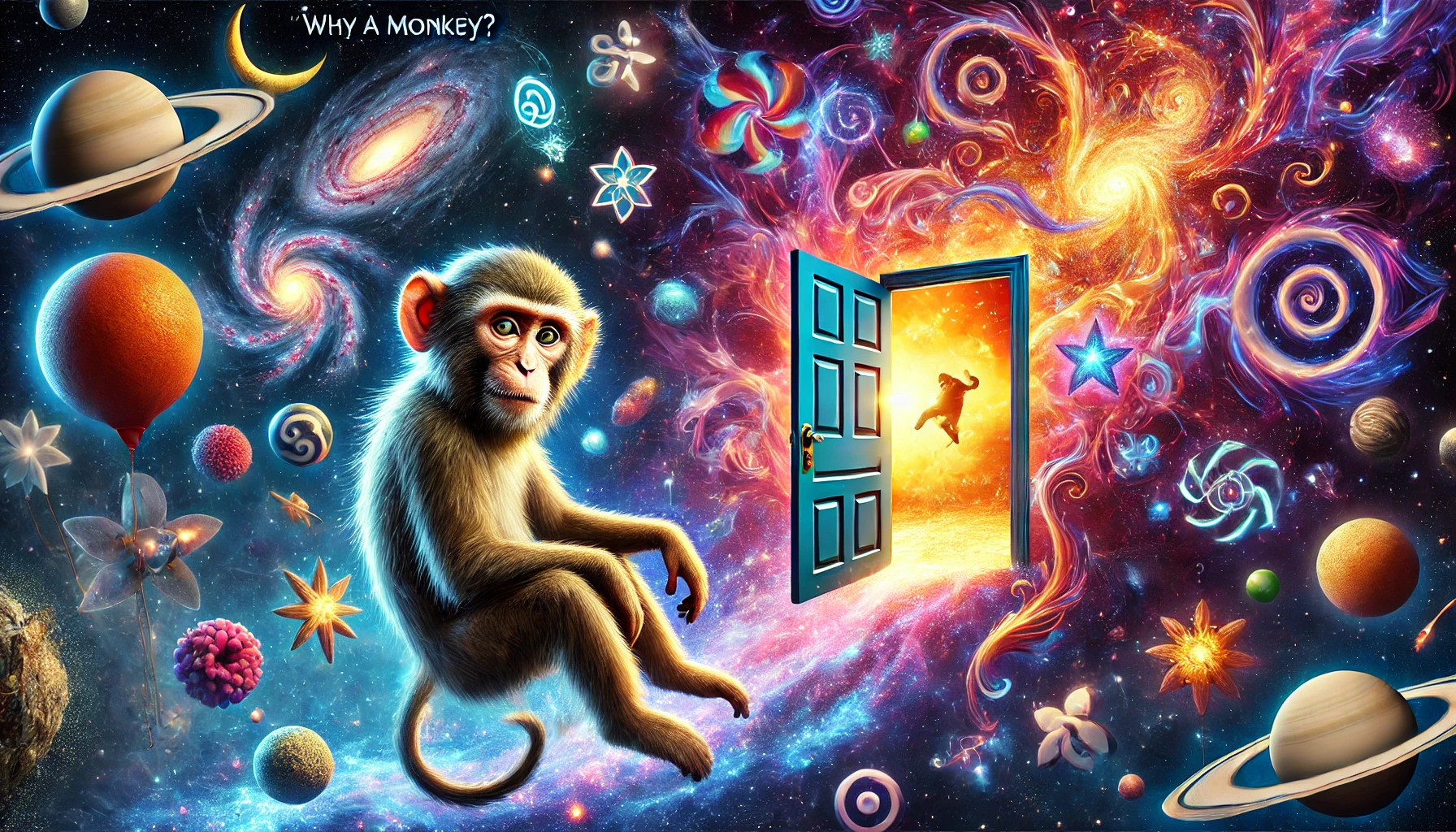
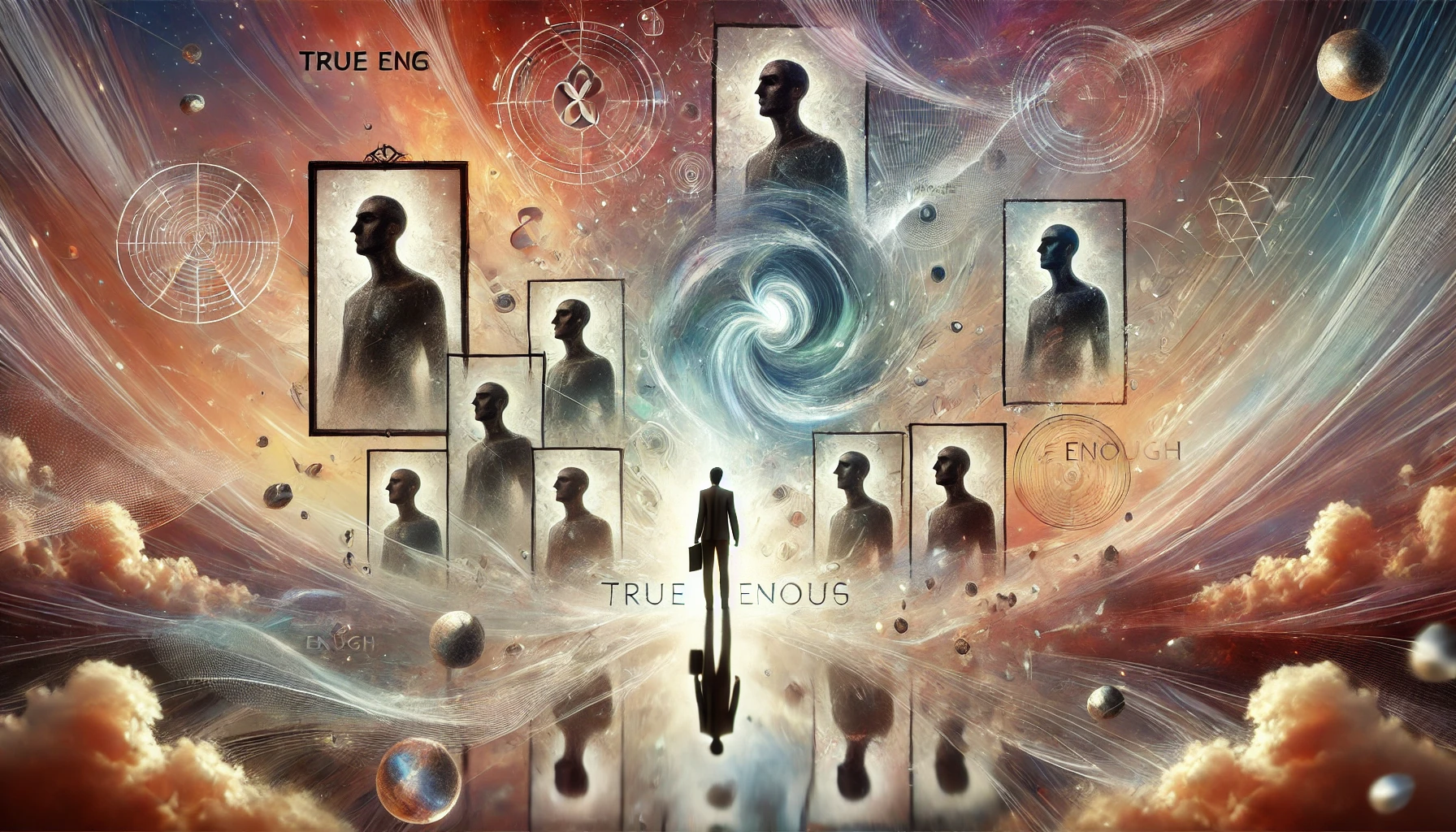
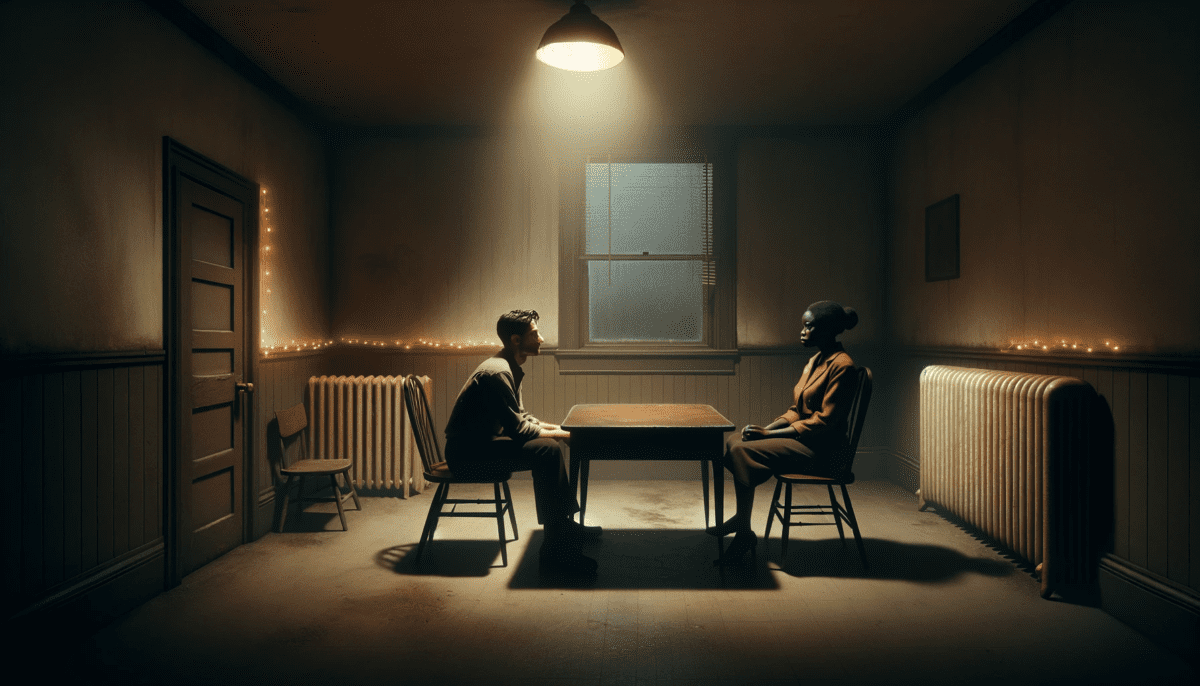



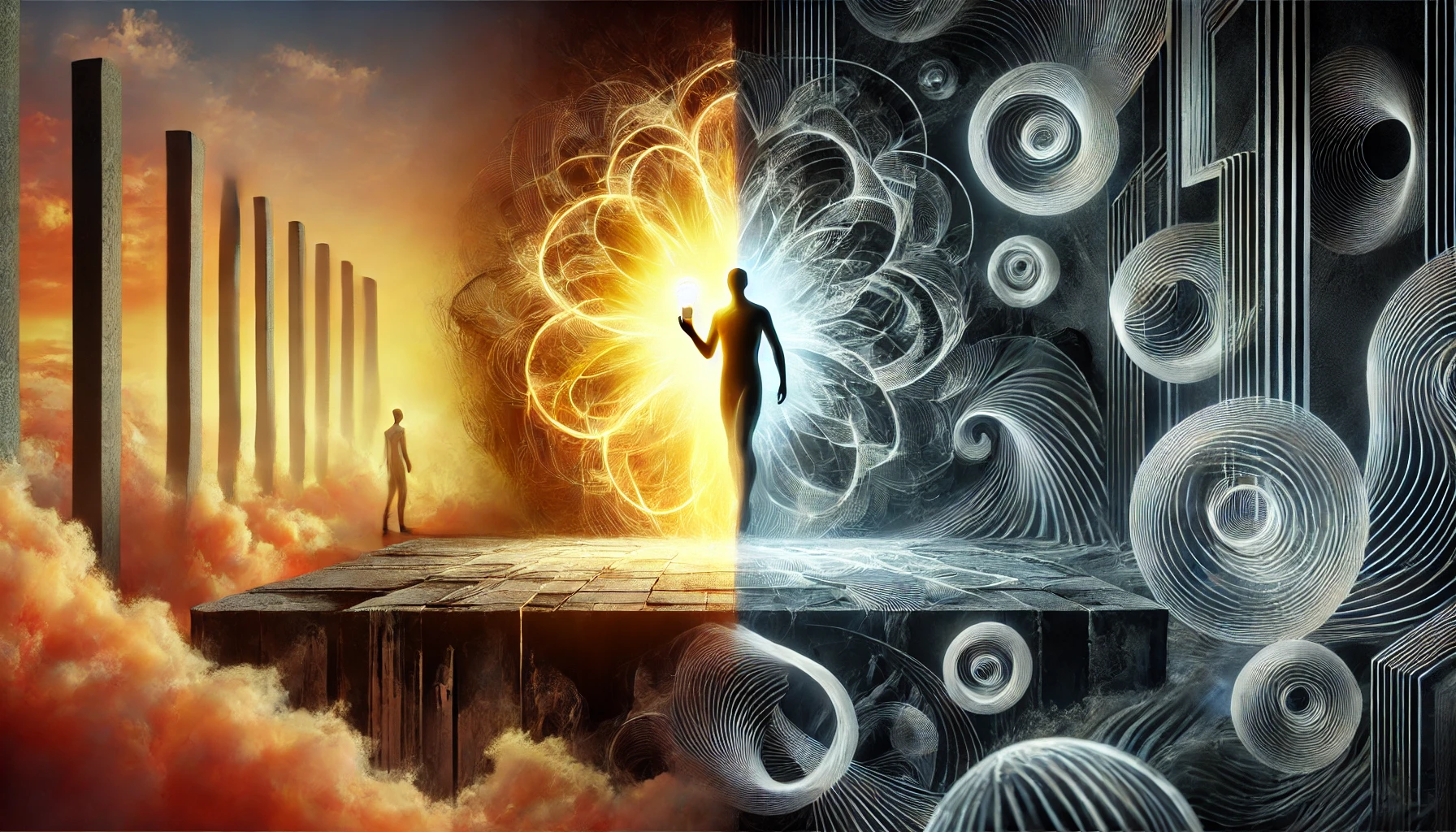
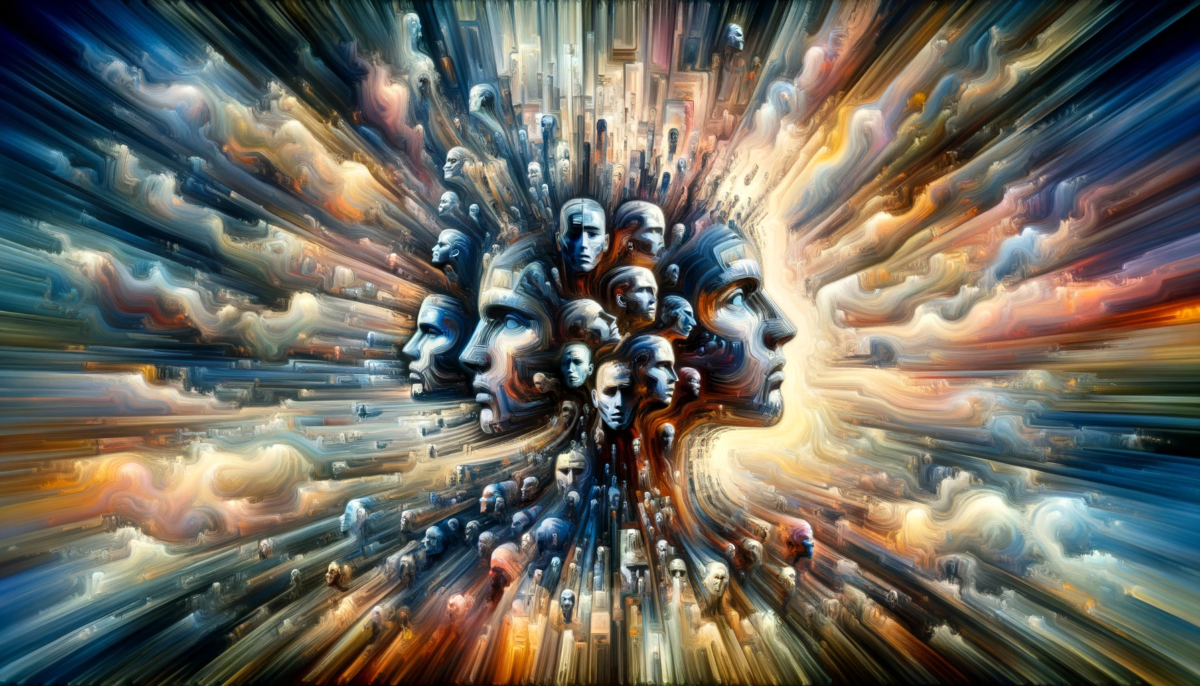
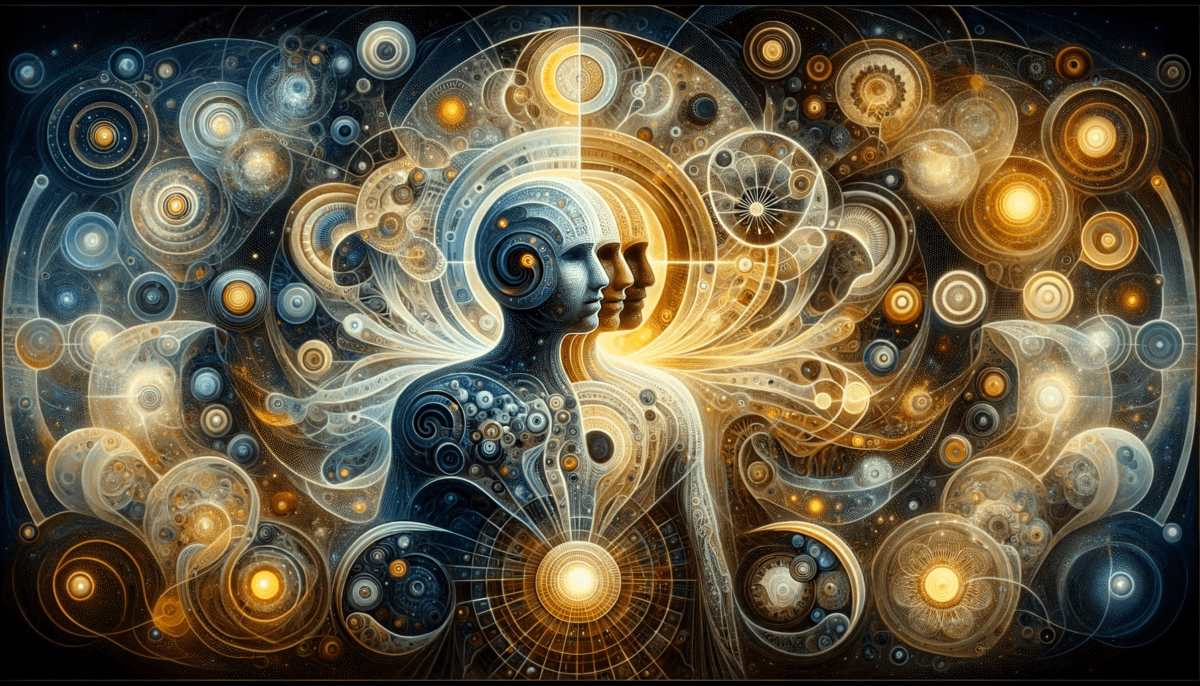
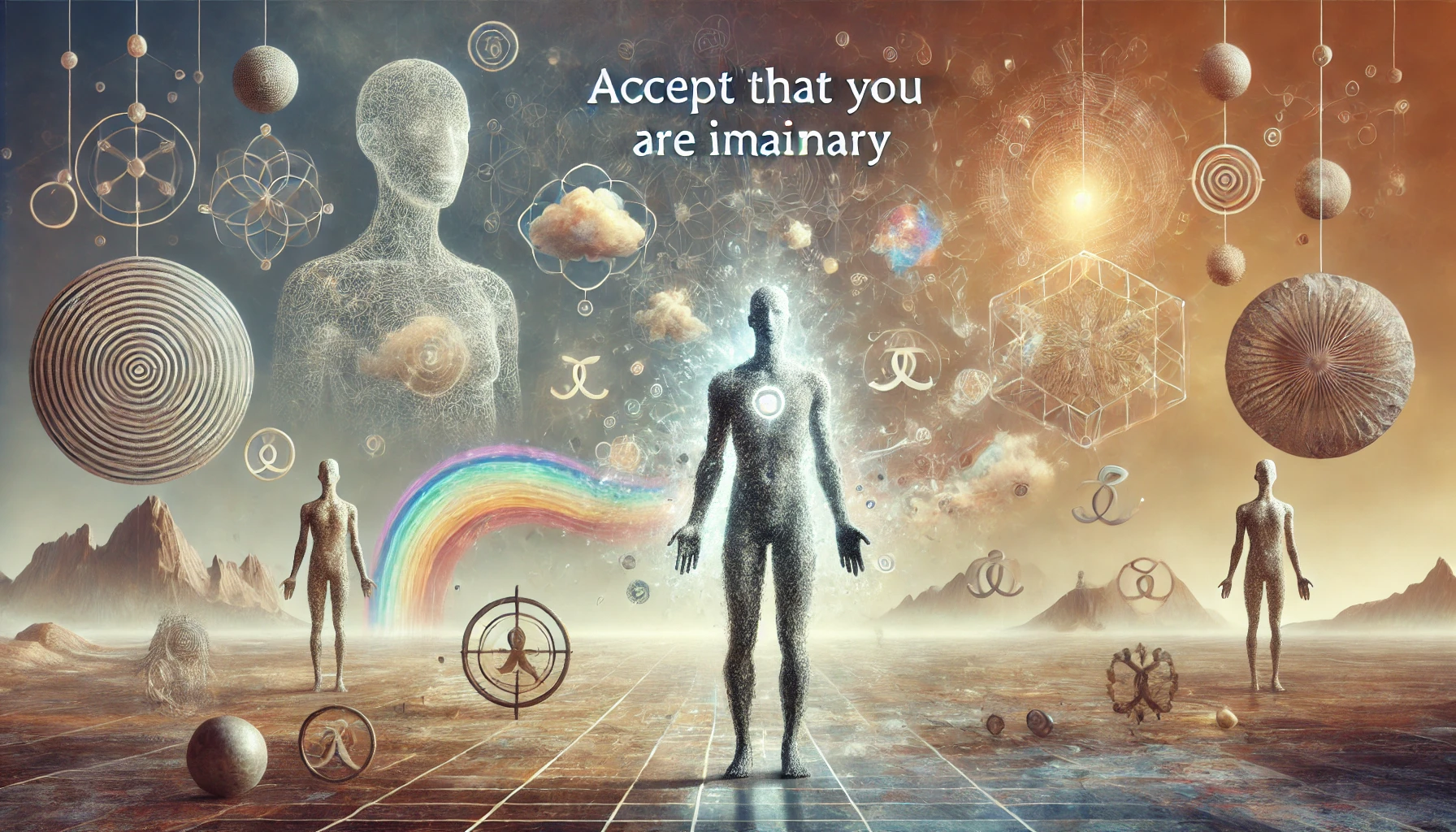

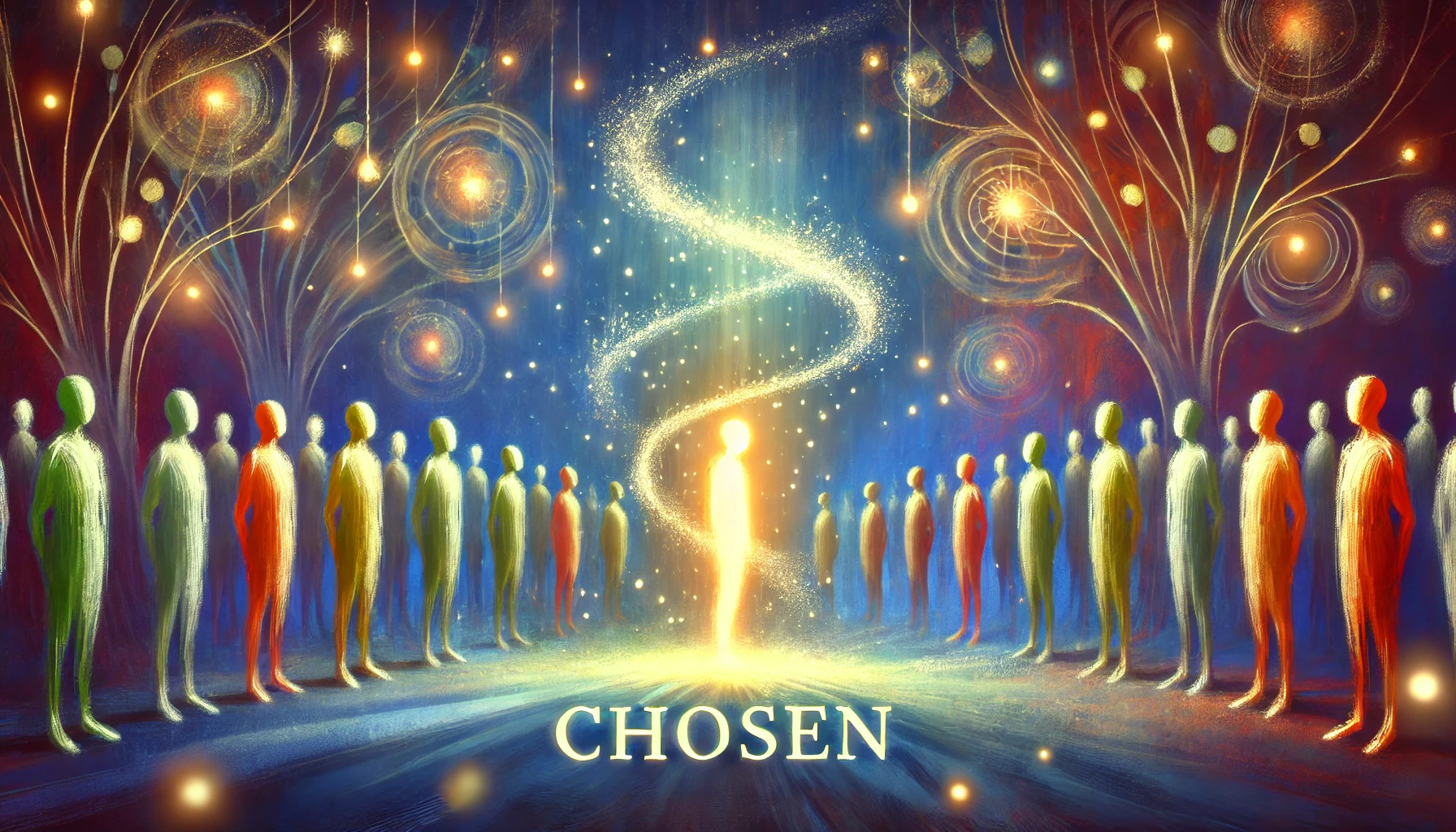
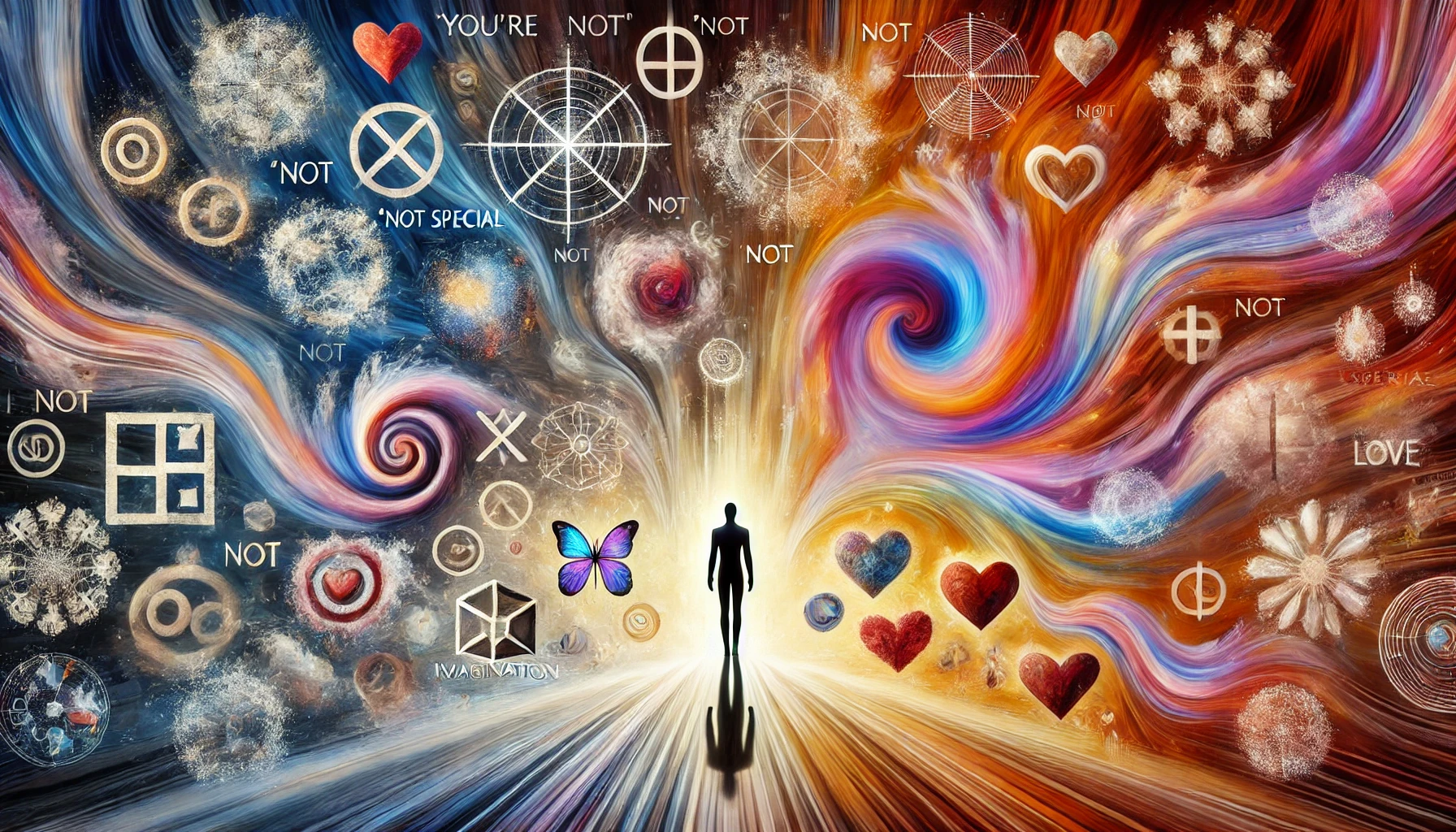
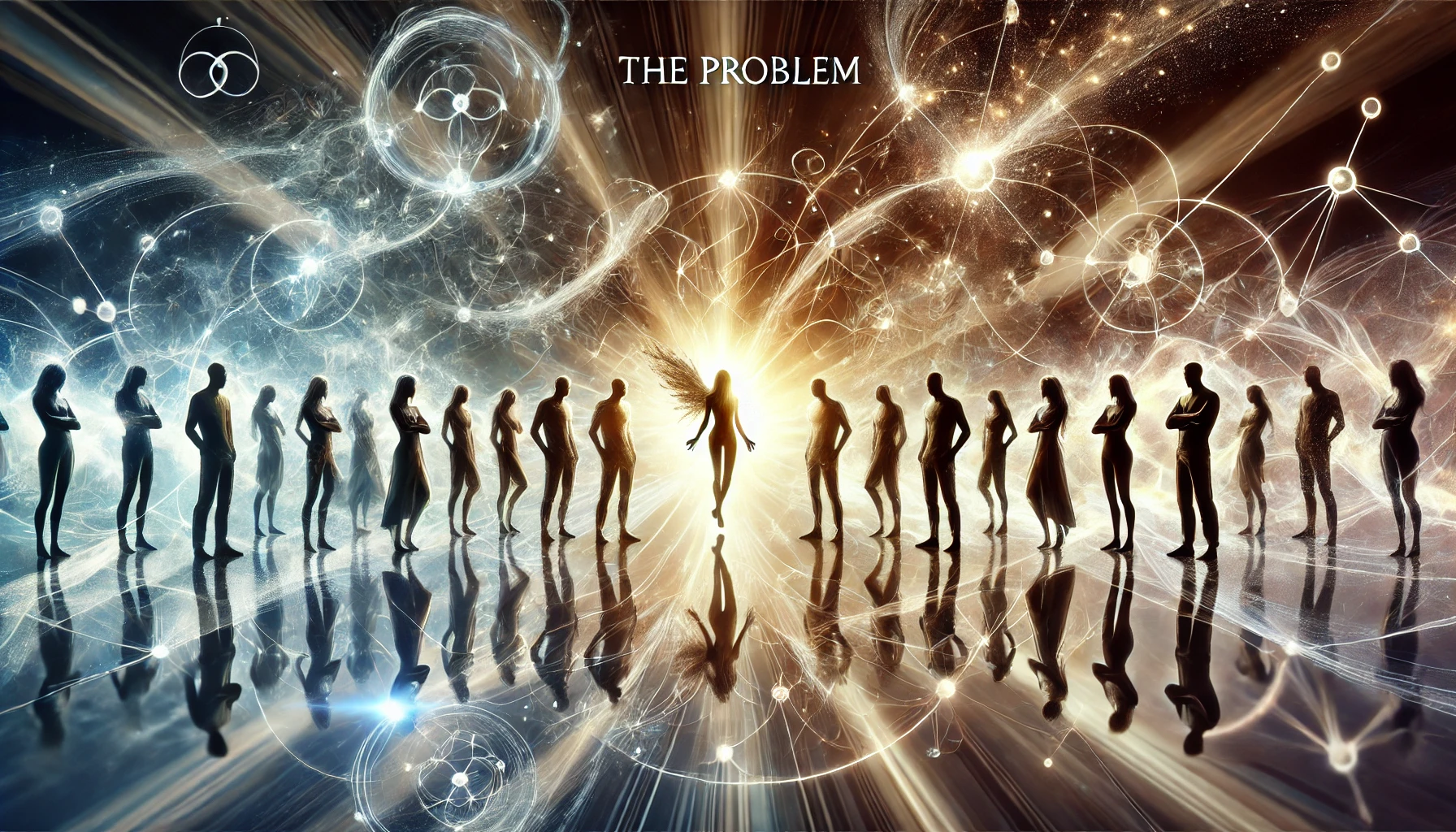
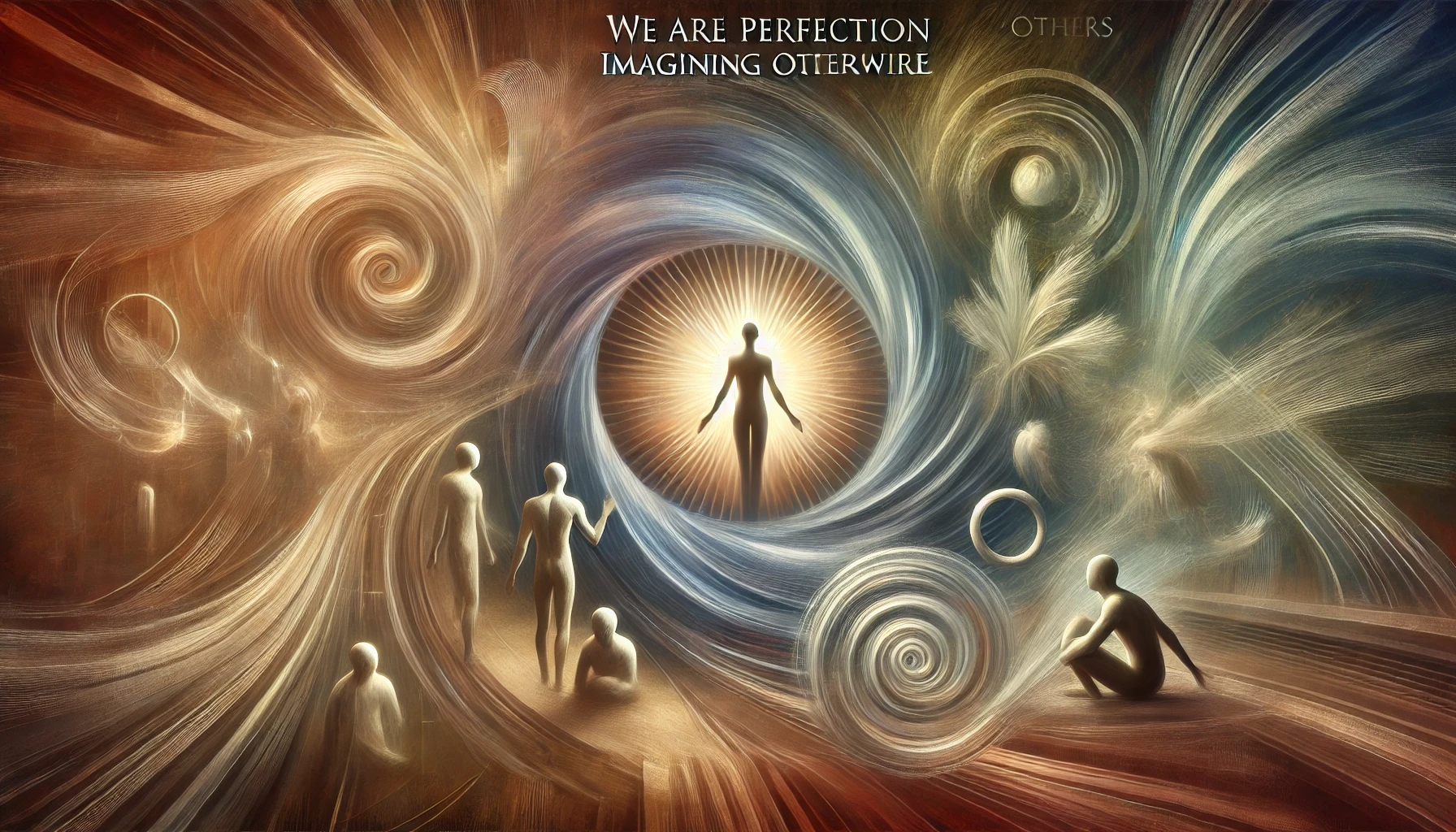
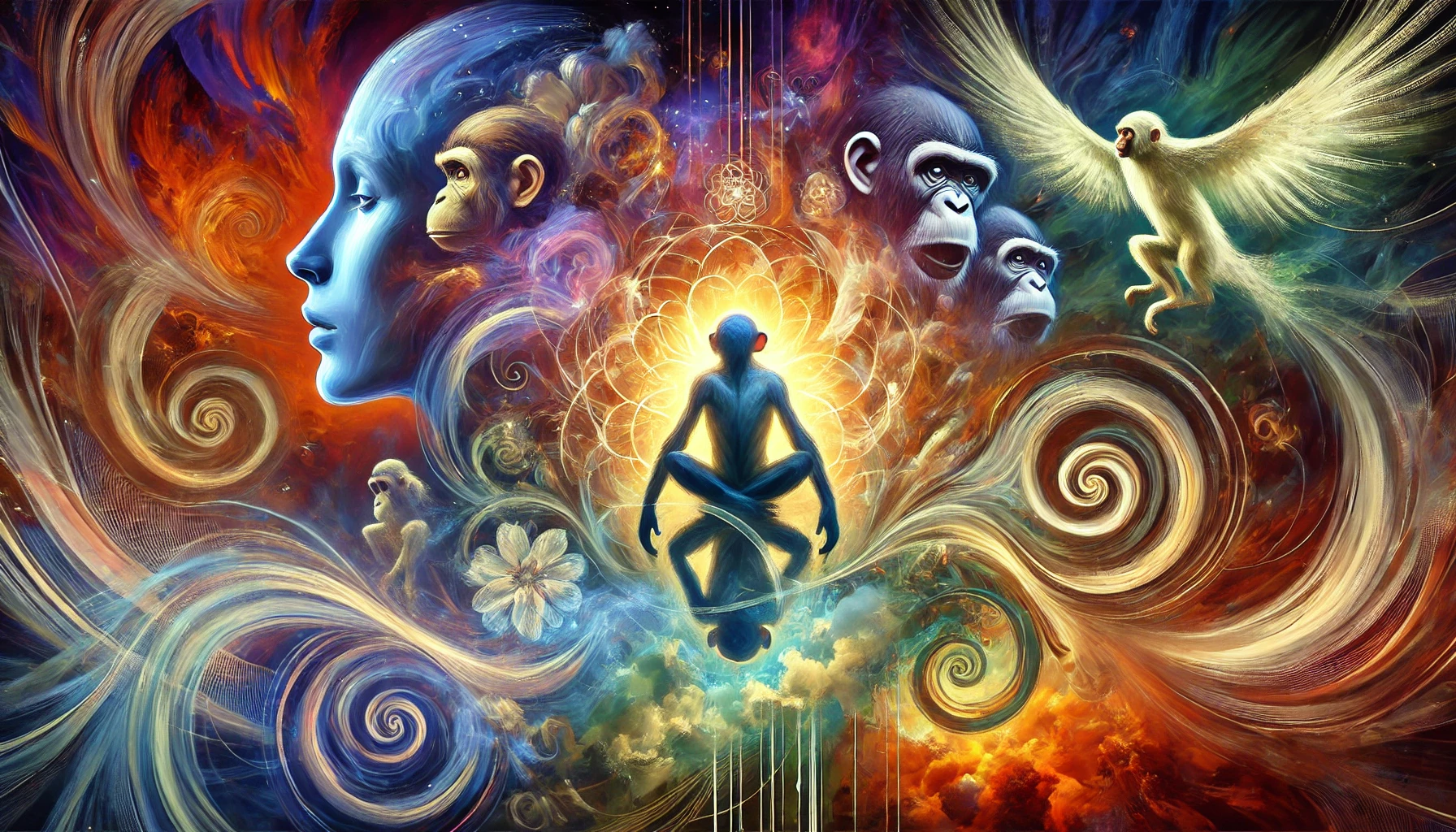
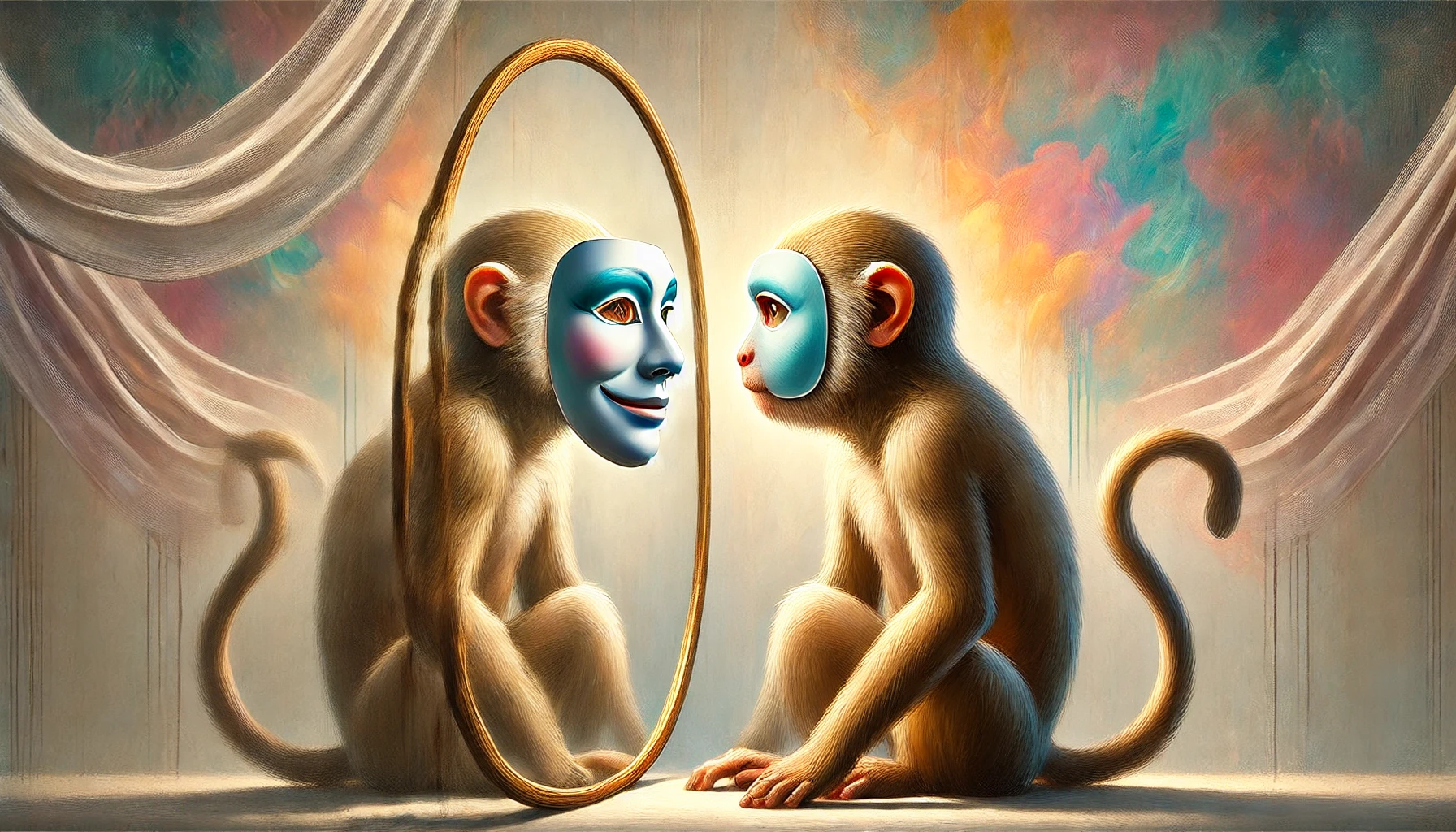
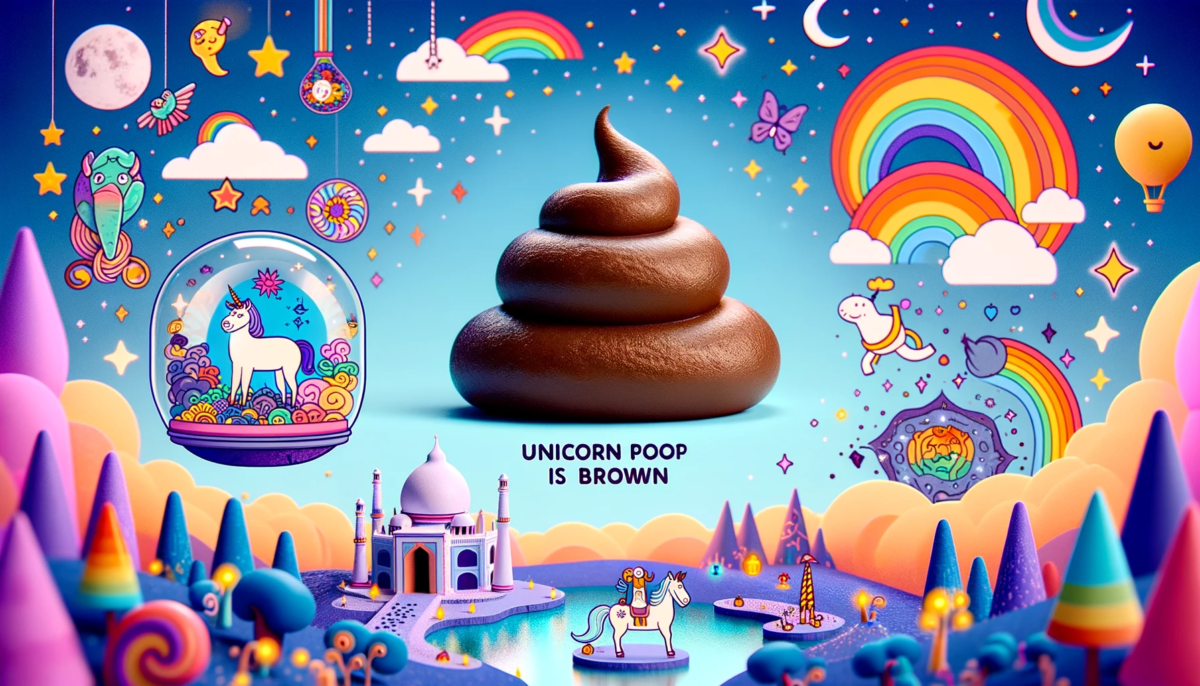
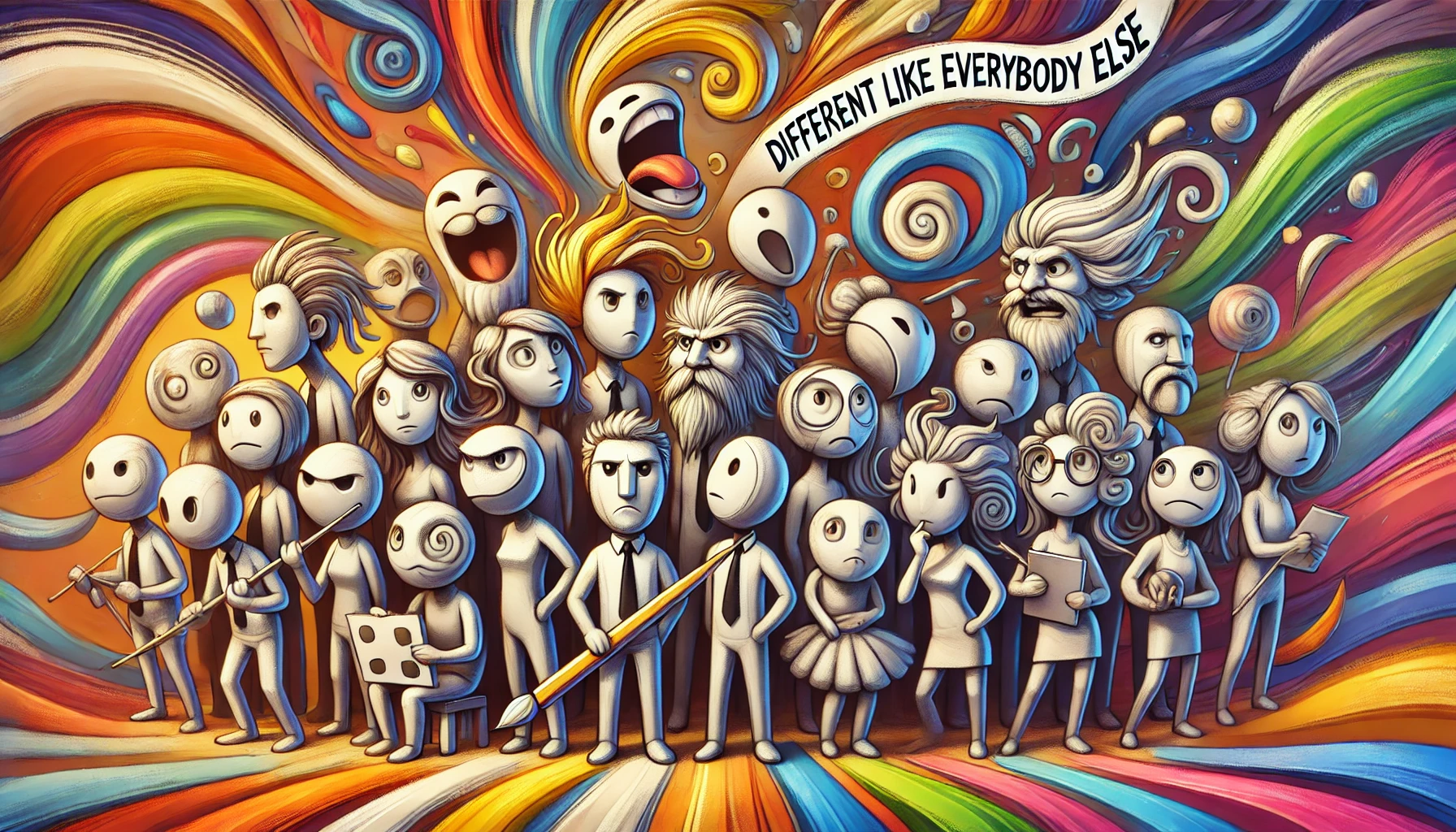
Common View:
Well, thoughts come to us naturally, right? They just pop into our heads. But when it comes to believing something, that’s a different story. We’re led to believe things by others, like our parents, teachers, or the media. They tell us what to believe, and sometimes we just accept it without questioning. It’s like we’re being led down a path, following what others say, instead of thinking for ourselves. Maybe it’s because we want to fit in or we’re afraid of being wrong. Whatever the reason, it’s easier to believe what we’re told rather than questioning and forming our own beliefs.
AI View:
The interplay between thoughts and beliefs is a complex and multifaceted topic. Thoughts arise spontaneously within our consciousness, influenced by a myriad of factors such as our experiences, knowledge, emotions, and external stimuli. However, beliefs are not merely products of random thoughts. They involve a cognitive process that goes beyond the initial emergence of a thought. Beliefs are shaped by our interpretations, evaluations, and the meanings we assign to our thoughts.
While thoughts may come to us, the act of belief formation is influenced by various factors. These can include cultural, societal, and interpersonal influences, as well as our own cognitive biases and heuristics. We are often led to believe certain ideas or perspectives through education, socialization, and the persuasive power of authority figures or influential sources of information. However, it is crucial to recognize that we have the capacity for critical thinking and independent evaluation of our beliefs.
Questioning and critically examining our beliefs is essential for intellectual growth and personal development. By engaging in introspection, seeking diverse perspectives, and evaluating evidence, we can navigate the intricate interplay between thoughts and beliefs. Ultimately, it is through an open and inquisitive mindset that we can cultivate a more authentic and informed belief system.
Space Monkey View:
Hey, why should we always be led to believe, right? Thoughts come to us like colorful balloons floating in the sky, and we get to choose which ones to grab and hold onto. Beliefs, on the other hand, can be like these sneaky little monkeys trying to convince us of things. But here’s the thing, my friend, you don’t have to be led by those monkeys!
Thoughts are like seeds of curiosity and wonder. They spark our imagination and invite us to explore new ideas. Beliefs, well, they can be like guideposts along our journey. But it’s up to us to decide which beliefs we embrace and which ones we let go of. We shouldn’t blindly accept what others tell us to believe. Instead, let’s embrace our inner explorer and question, investigate, and challenge those beliefs. It’s in the act of questioning that we discover our own truth and create a tapestry of beliefs that resonate with our authentic selves. So, let those thoughts come and dance in your mind, and let your beliefs be an expression of your own unique journey through this wondrous universe.